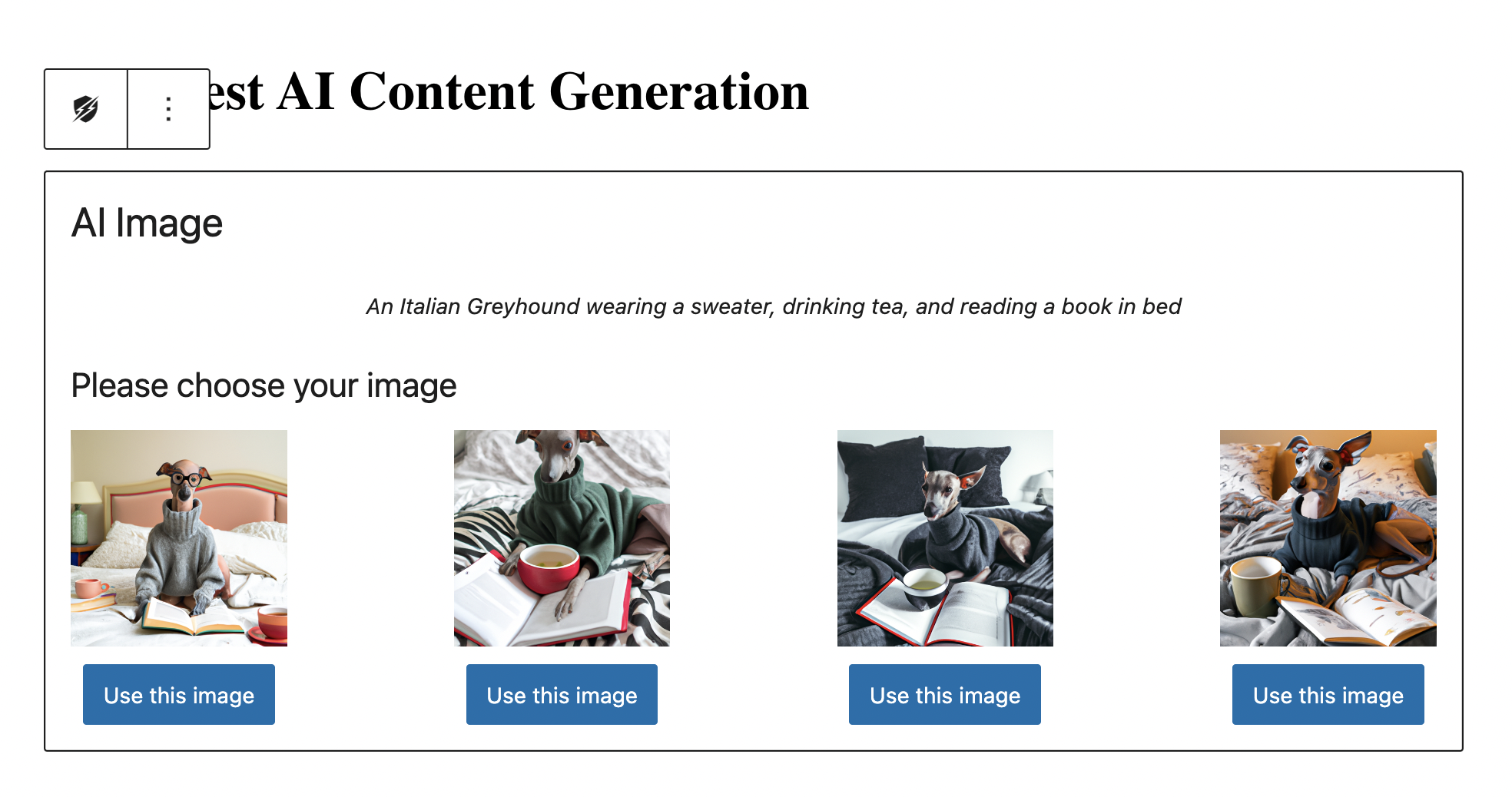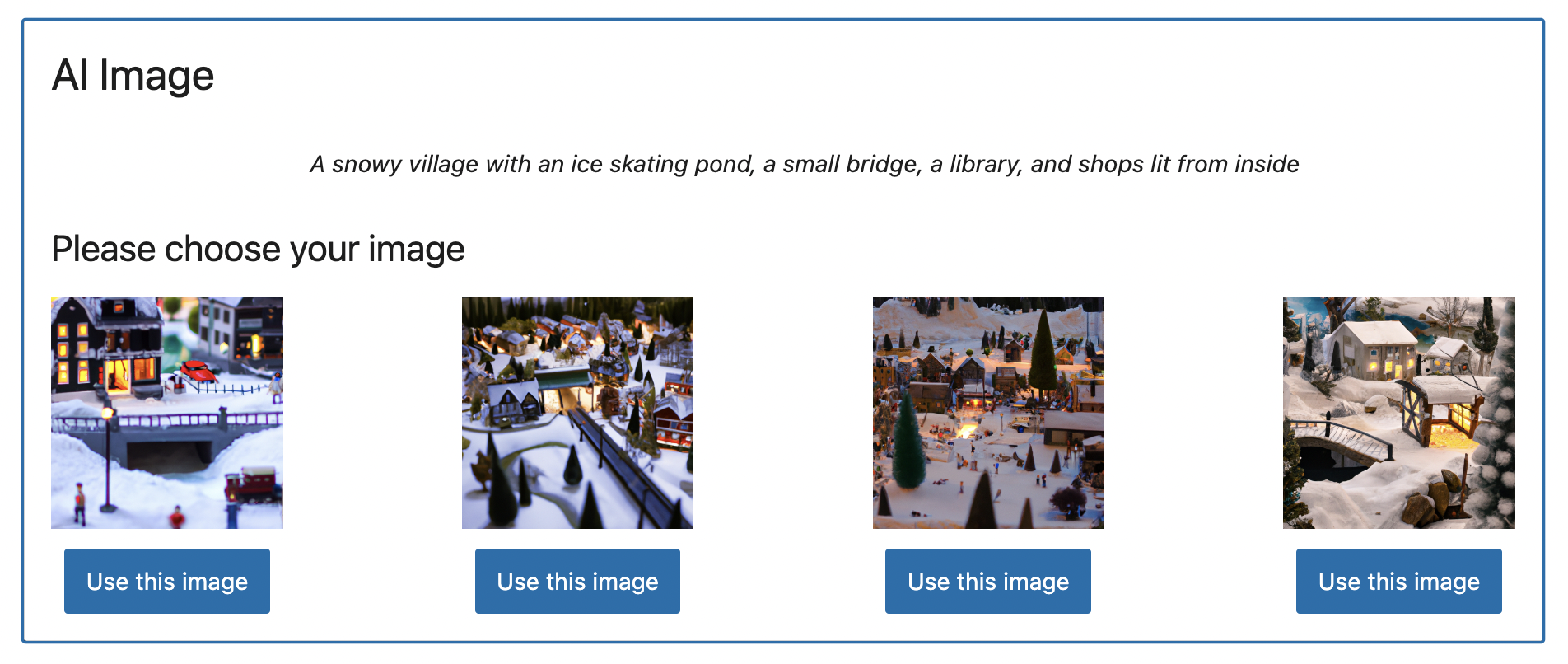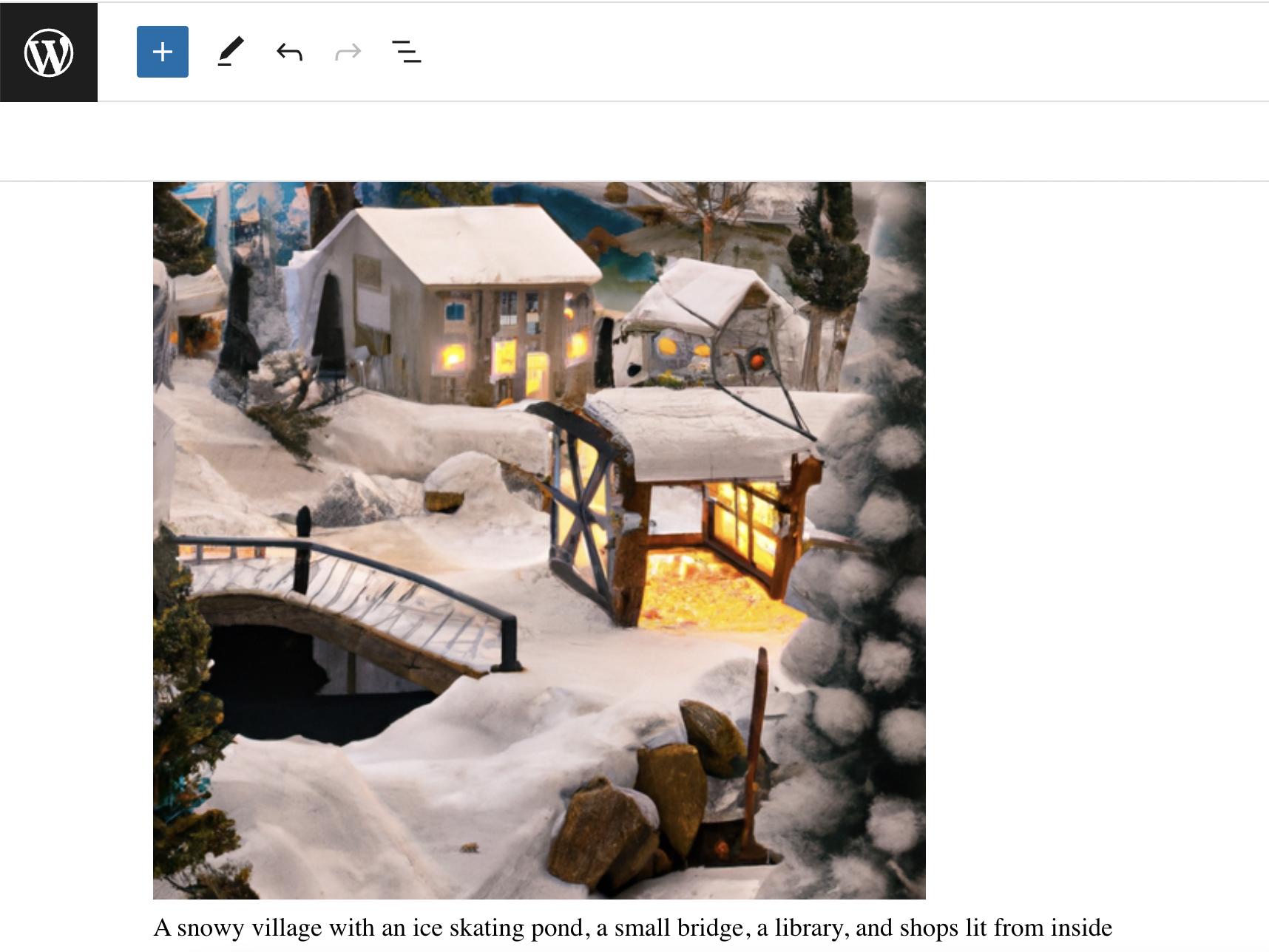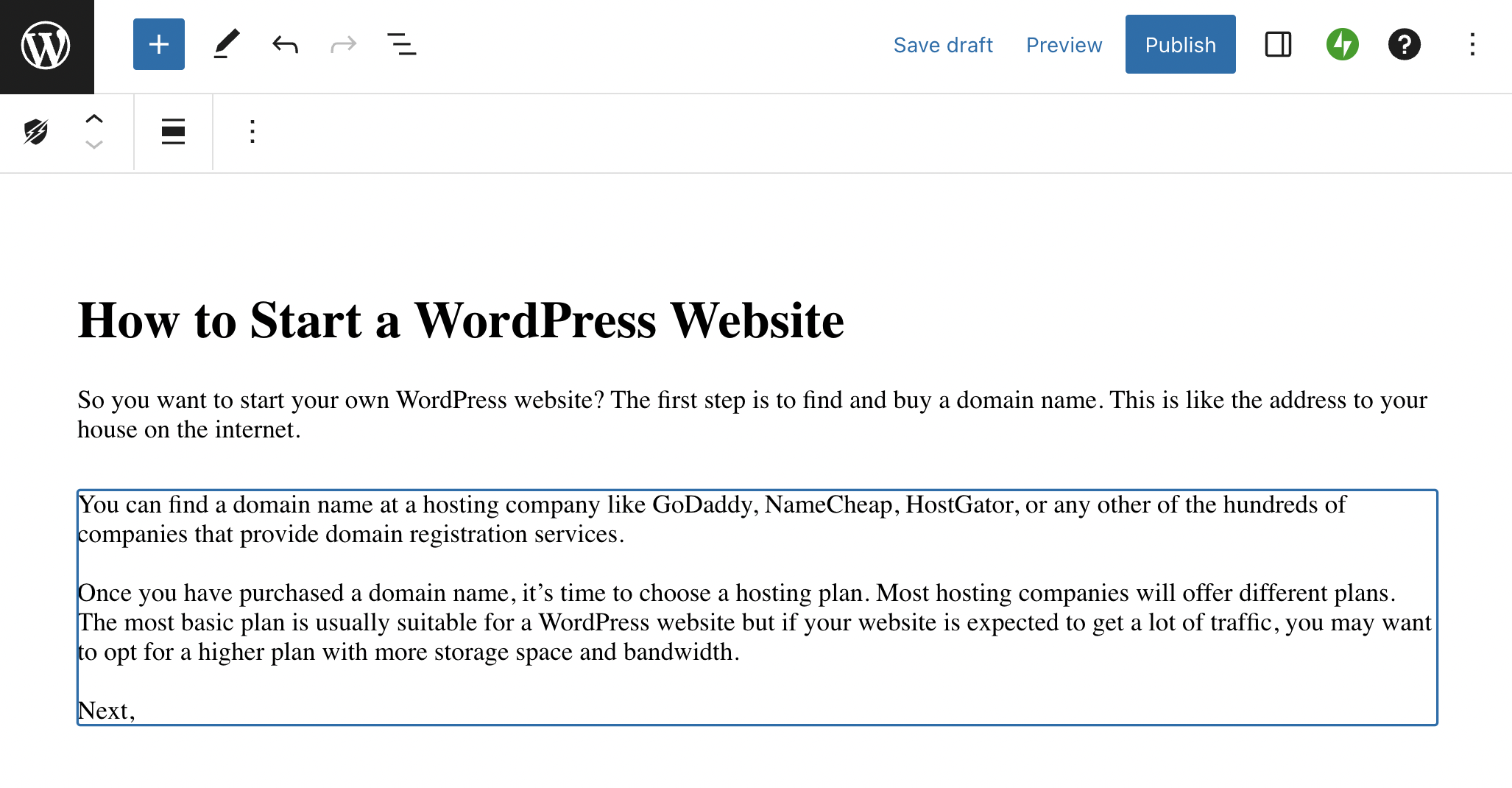WordPress.com is currently testing two new blocks for generating images and paragraph content using AI. The blocks, which are currently labeled as experimental, were first spotted by Jen T of WPcomMaven who published a few examples on her blog this week.
WordPress.com developed the blocks through a partnership with OpenAI, creators of ChatGPT and DALL·E. Automattic engineer Artur Piszek gave a quick overview of the experimental blocks in a post on the WordPress.com support forums, calling the new feature “Jetpack AI – your writing assistant on WordPress.com.”
I took both blocks for a test drive, starting with the image generator. Users put in a prompt in a simple UI and the block generates four images, which can be expanded before selection. Here are a few examples:


I was not terribly impressed with the images, which every time seemed blurry and ill-conceived. Some of them bore an almost cruel likeness to the prompts, with living creatures and humans faring poorly compared to images of inanimate objects. The faces are almost always distorted with what appears to be bits of flesh melting off. Unless a user is unusually skilled in crafting the prompts, they may struggle to get any useful images.

The AI-generated paragraphs are a somewhat better experience but need more flexibility. The block will automatically generate new paragraphs based on your existing content. It does a decent job, but it would be more useful if you could start from a blank page and feed it a prompt instead, as one of the main benefits of using AI for generating content is that it can offer a starting place from which the writer can improve.

The content can be further edited by transforming the block into a paragraph. This isn’t easy to discover and would need to be emphasized better in the UI.
“We were considering making the block outright editable, and I see that we may need to create a more intuitive editing experience,” Piszek said after reviewing feedback from users in the forum.
When using this experimental paragraph-generating block, users may want to familiarize themselves with how AI-generated content can impact their search rankings. Google recently published guidance stating it will reward high-quality content however it is produced but cautions that “those seeking success in Google Search should be looking to produce original, high-quality, people-first content demonstrating qualities E-E-A-T (expertise, experience, authoritativeness, and trustworthiness).” This is not always possible when using automation.
WordPress.com’s AI-generated content blocks are in the earliest stages of testing and are not guaranteed to be publicly launched or make it into Jetpack. With some refinements, the blocks could prove useful but will more than likely only be available to paying customers, as the costs of AI-generated processing resources can stack up fairly quickly.
“AI models and tools are a bit unpredictable,” Piszek said. “We want to be mindful of how those tools behave, what impact they have on your creativity, and how we can make them support you.
“At the same time, we are still learning and adapting, so please keep in mind that these features can change or disappear anytime.
“Once we announce them, they are most likely be paid extra (on top of existing plans) depending on how much we have to pay OpenAI for their services.”
WordPress.com users who test the experimental blocks are encouraged to leave their feedback in the announcement thread.
